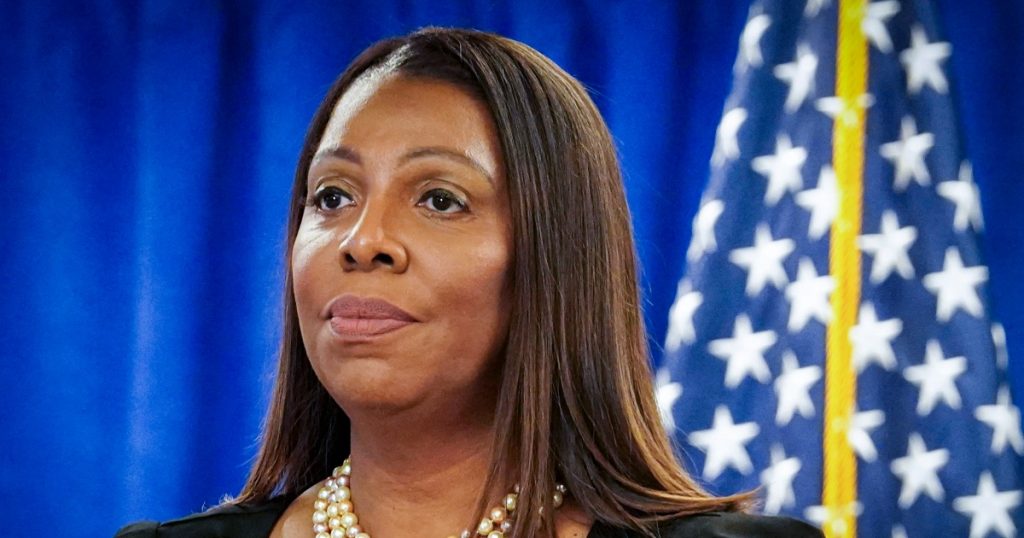In a recent development, a judge denied Nassau County’s request for a temporary restraining order against New York state Attorney General Letitia James, allowing legal action to continue against the county’s ban on transgender players on women’s and girls teams. U.S. District Court Judge Nusrat Choudhury stated that the county did not demonstrate irreparable harm necessary to warrant such an order. The ruling did not determine the legality of the ban or James’ request for dismissal, which will be decided at a later date.
Attorney General James had issued a “cease and desist” letter to Nassau County last month, challenging the ban on transgender players as a violation of New York’s anti-discrimination laws. The ban also faces opposition from a local women’s roller derby league, which has requested a state court to invalidate it. Nassau County Executive Bruce Blakeman responded to James’ action by filing a federal lawsuit to affirm the legality of the ban and prevent further action against it. The ban impacts over 100 public facilities in the county, denying permits to female sports organizations that accept transgender women or girls to use county-owned parks and fields.
The ban on transgender players in Nassau County follows a trend seen in other Republican-led cities and states, claiming that allowing transgender athletes to compete alongside women and girls would result in discrimination and violation of constitutional rights to equal protection. Despite the legal challenges, both Attorney General James and County Executive Blakeman have not provided comments in response to the recent ruling. The dispute between the state and county over the ban remains ongoing, with further legal proceedings expected to address the legality of the ban in the near future.
The decision by the judge to deny Nassau County’s request for a temporary restraining order allows the legal battle over the ban on transgender players to continue, with the eventual determination of its legality still pending. Attorney General James’ efforts to challenge the ban as a violation of anti-discrimination laws and the response from County Executive Blakeman through a federal lawsuit highlight the contentious nature of the issue. The involvement of local organizations, such as the women’s roller derby league, in opposing the ban adds to the complexity and significance of the dispute.
As the case moves forward, the clash between state and county officials over transgender inclusion in women’s and girls’ sports underscores the broader debates surrounding LGBTQ+ rights and equality. With the potential implications for transgender athletes in Nassau County and beyond, the outcome of this legal battle will have far-reaching consequences. The differing perspectives on the issue, from concerns about discrimination and constitutional rights to arguments about fairness in competition, reflect the complexity and sensitivity of the topic. Ultimately, the resolution of this dispute will shape future policies and practices regarding transgender participation in sports at the local and state levels.


